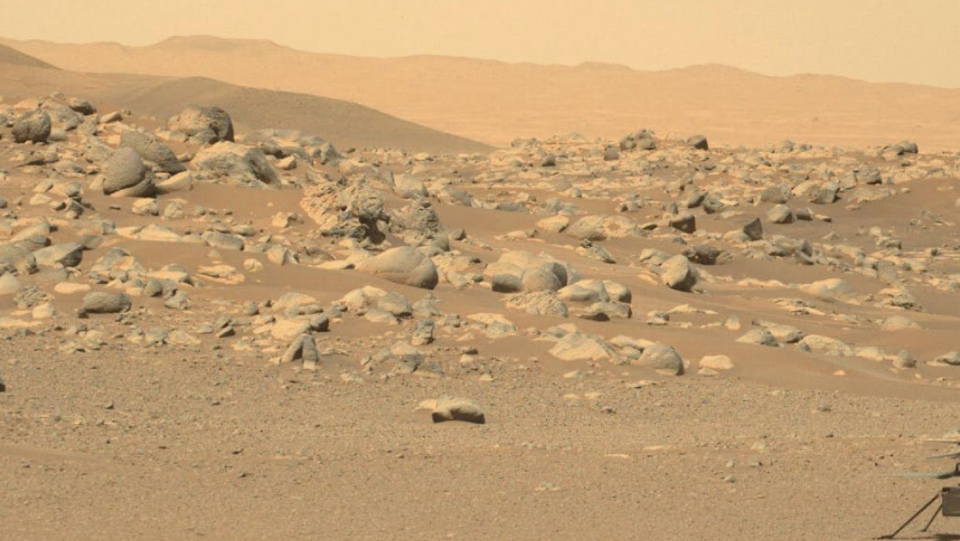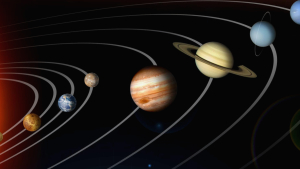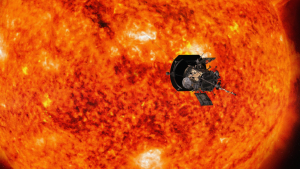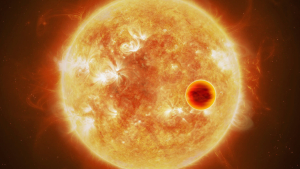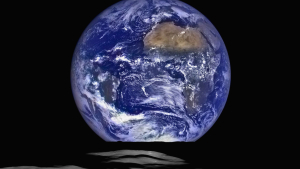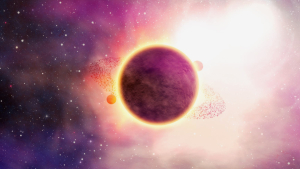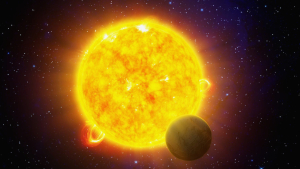Actually, the mobile robot Perseverance is supposed to collect numerous soil samples on Mars. At best, even find references to living beings. But this has been difficult to say the least since the landing in 2021, the drilling has not been going optimally so far. What the rover managed to do as planned: record the soundscape – a mission that no Mars robot has ever completed before.
Perseverance caught the noises of air turbulence, the spark of stone with the roe laser and various other sounds of the equipment. A team worked out what was already heard for all interested parties on the Internet and published it in detail in the magazine »Nature«. A total of 4 hours and 40 minutes of Mars noises were analyzed.
Two microphones collected sounds in the audible range and beyond. The recorded frequencies range from 20 hertz to 50 kilohertz, according to the team led by astrophysicist Sylvestre Maurice. According to the researchers, Perseverance's microphones detect changes in wind speed, for example, based on the varying sound intensity. Pressure fluctuations with frequencies of more than 20 Hertz have been measured, the researchers write, this has never been observed on Mars before.
What sets the sounds on Mars apart from those on Earth
The atmosphere on Mars differs from the earthly in temperature, density and composition. This affects the sound and thus on the noises, as can be heard in the playlists of the NASA space agent. However, the differences are smaller than some may assume. Above all, three things are different: the volume, the speed of sound and sound quality.
In addition to the laser beams, the necessary sound has provided, including helicopter Ingenuity. As a result, the team demonstrated a unique characteristic of the Mars atmosphere. There, the speed of sound changes in the middle of the frequency range audible to humans. For the high -frequency, sound waves generated by the laser pulses, the team according to their own information determines sound speeds between 246 and 257 meters per second. The rotor blades of the helicopter, on the other hand, generate low -frequency sound waves at frequencies of around 84 Hertz - and they were significantly slower at just 240 meters per second.
This would have the idiosyncratic effect that you would hear the high notes from a voice first, while the low frequencies arrive a fraction of a second later. The cause of the effect is the way carbon dioxide molecules absorb the energy through the sound waves. At low tones, carbon dioxide has time to redistribute the energy absorbed from the sound. This means that it converts the vibrations in the molecule into other types of movement before the next wave crest occurs – for example, rotation.
At frequencies over 240 Hertz, on the other hand, the wave mountains of the sound follow too close together, the experts report in a summary for the Lunar and Planetary Science Conference, which took place in early March 2022. As a result, the molecular vibrations stimulated by the sound are still "blocked" and the sound wave loses less energy to the gas molecules. As a result, the gas at these frequencies is literally "stiffer" - and therefore the sound speed is around ten meters per second higher.
Moreover, because the atmosphere is about 100 times less dense than on Earth, you only hear a quieter, more subdued version of what you would hear on our planet. Despite the permanently annoying clanking tires, you should remain particularly attentive, so that a Perseverance does not surprisingly drive over the foot.
Subtitles Quality Velocity
Also, sound on the Red Planet takes a little longer, which would be noticeable especially over longer distances. "With an average surface temperature of about minus 63 degrees Celsius, Mars has a lower speed of sound, about 240 meters per second compared to about 340 meters per second," the space agency explains on its website.
In addition, there are some tones to which we are used to the earth, such as bird singing, on which Mars is almost inaudible. The reason for this: The Mars atmosphere consists of 96 percent of carbon dioxide, which blocks certain frequencies.
"Sound is a new, rich source of information," the paper states. The results would help model acoustic processes on different planets, the team writes. Also on Venus, for example.







